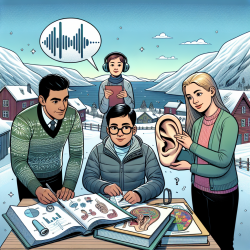Neurodevelopmental disorders (NDDs), including autism spectrum disorder (ASD), developmental delay (DD), intellectual disability (ID), and attention-deficit/hyperactivity disorder (ADHD), are characterized by difficulties in motor skills, learning, memory, language, and other neuropsychiatric issues. These disorders are often genetically complex, with significant heterogeneity at both phenotypic and genetic levels.
The Role of Targeted Sequencing in Identifying Risk Genes
Recent advancements in next-generation sequencing technologies have enabled researchers to identify hundreds of genes implicated in NDDs. A study titled "Large-scale targeted sequencing identifies risk genes for neurodevelopmental disorders" has made significant strides in this area. By sequencing 125 candidate NDD genes in over 16,000 cases, the study identified 48 genes with a significant burden of ultra-rare gene-disruptive mutations.
Key Findings from the Research
- The study identified 48 genes showing a significant mutation burden, with 25 being newly reported.
- Among these genes, six reached family-wise error rate significance.
- The research also reevaluated de novo mutation excess in over 17,000 NDD trios, identifying 90 genes enriched for such mutations.
- Phenotype-genotype correlations were presented for seven risk genes based on the large-scale targeted sequencing effort.
Implications for Practitioners
The findings from this research have several implications for practitioners working with individuals with NDDs:
Improved Diagnostic Accuracy
The identification of new risk genes allows for more precise genetic testing and diagnosis. Practitioners can use this information to better understand the genetic underpinnings of NDDs in their patients and provide more accurate diagnoses.
Enhanced Therapeutic Interventions
Understanding the specific genetic mutations associated with NDDs can lead to the development of targeted therapies. Practitioners can collaborate with researchers to explore new treatment options that address the underlying genetic causes of these disorders.
Encouraging Further Research
The study highlights the importance of continued research into the genetic causes of NDDs. Practitioners are encouraged to stay informed about ongoing research efforts and consider participating in studies that aim to uncover additional genetic factors associated with these disorders.
Conclusion
The advancements in targeted sequencing and the identification of new risk genes for neurodevelopmental disorders represent a significant step forward in understanding these complex conditions. By integrating these findings into clinical practice, practitioners can improve diagnostic accuracy and therapeutic interventions for individuals with NDDs.
To read the original research paper, please follow this link: Large-scale targeted sequencing identifies risk genes for neurodevelopmental disorders.










